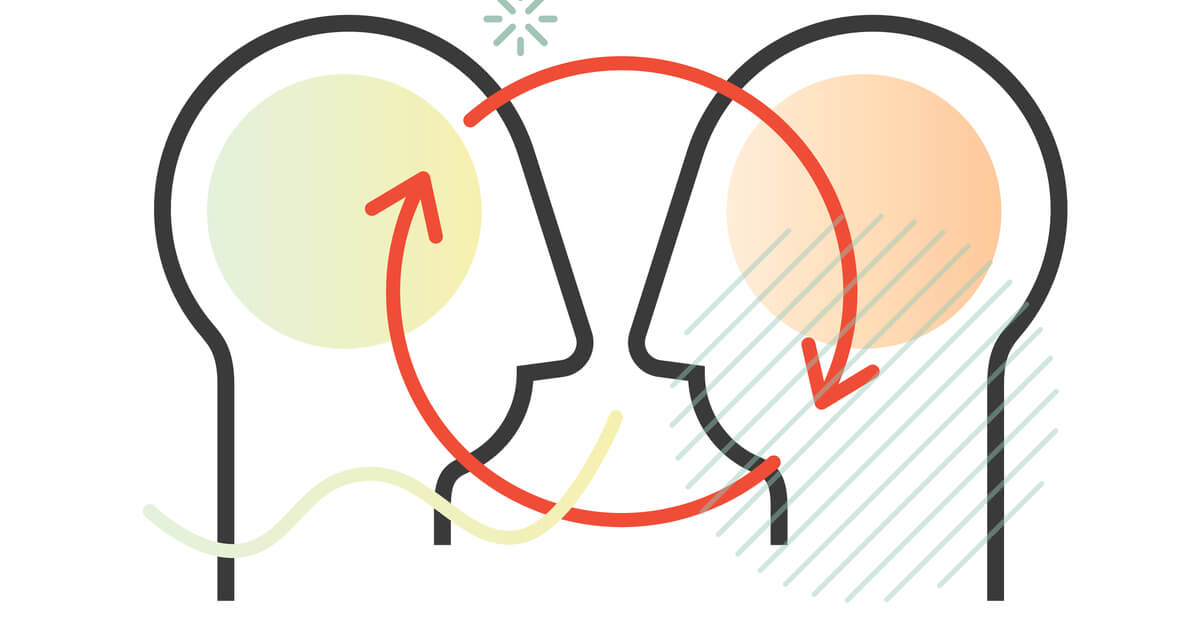Empathy is a quality that benefits our personal relationships. In addition to partially wearing ” instead of the other, it also allows us to perceive and understand one’s emotions, however too much empathy can also gradually lead us to suffer from Empathy Wear Syndrome, a definition proposed by psychologist Charles Figley.
According to the Professional Care and Palliative Mechanisms of Empathy Wear study, empathy can be dangerous and disabling if not managed properly.
- If we are unable to stop attrition from empathy early.
- This can cause severe secondary trauma or become the onset of exhaustion syndrome.
Normally, empathy syndrome affects professionals who treat patients who are suffering, experiencing discomfort or living in severe pain, we are talking about psychologists, social workers or doctors, among others.
Empathy is an important part of your job. However, without the right tools, what you achieve can end up becoming your own enemy.
While empathy wear syndrome can affect people in some of the occupations mentioned above, “common” people may also suffer. This can happen because we are too empathetic and too concerned about the emotional pain of others.
However, it is one thing to understand the pain of the other and another to feel it, the latter is what happens to very empathetic people, it is as if they are absorbing the pain of others and that prolonged exposure (or very intense exposure) for them could lead to attrition syndrome for empathy.
We talk about emotional exhaustion, often accompanied by feelings of isolation, confusion and tendency to suppress/contain emotions.
Fortunately, as we have pointed out, there is the possibility of some tools that allow us to face this syndrome and prevent it, knowing them is important so as not to get caught up in the emotions of others, maintaining a certain psychological distance to protect our well-being. -be and regulate our mood.
“One way or another, it makes me vibrate what someone else feels, and when the emotions to which a person is exposed are of deep suffering, the impact is obvious. ” – Bay-
Then we will see some tools that we can put into practice if we have a job that requires contact with people who need help, or if we are very empathetic and causes us intrusive thoughts, loss of energy, increased anxiety, somatized emotions. . or apathy. To do this, we will use the following work: Bring empathy with family doctors.
Another set of tools we talk about is the need to know how to disconnect, as well as to learn and train to manage the wear and tear caused by empathy.
All of this does not mean eliminating our capacity for empathy, but putting into practice certain strategies to protect our well-being.
“I don’t ask the injured person how they feel. Will I become the injured person myself?-Walt Whitman-
Empathy exhaustion syndrome can make us feel guilty: we are so psychologically tired that we believe we have lost our ability to empathy, it is a consequence of not knowing how to regulate and protect ourselves properly.
We hope that the tools we’ve talked about will not only help you cope with the wear and tear of empathy, but also solve other problems you may encounter, as each of them is just a recommendation that we should implement more. often to feel better and have greater well-being.
In any case, if you think you may be suffering from an empathy carrier syndrome, do not hesitate to seek professional help, a psychologist will guide you to find out what works for you and will accompany you throughout the process. an empathetic person, but will have the resources to protect your well-being.

